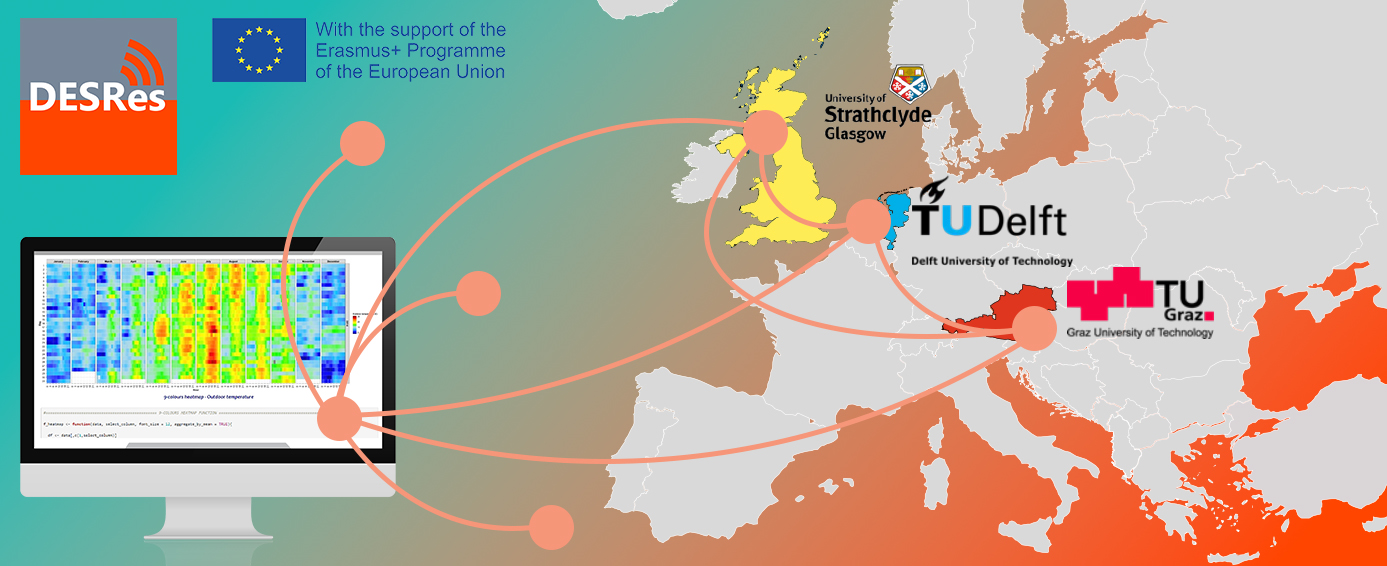DESRes
Subtitle research project page
An international educational programme that stimulates remote exchange of knowledge and data among students within the building performance simulation field.

The Digital Erasmus project was proposed in the context of the general restrictions on travel due to the COVID-19 pandemic. The restrictions that the entire European population had faced considerably impacted all traditional mobility programmes offered to Higher Education students and hindered the acquisition of important interpersonal skills that these programmes promote. At the same time, this situation has sparked a reflection about segments of the population that have always been prevented from participating in exchange and mobility activities, due to socio-economical, cultural or physical disadvantages. The architecture, engineering and construction (AEC) sector is another typical example of widespread discrimination against non-typical professional figures, e.g. women and people with a wide range of disabilities.
We aim to tackle both of these issues (reduced international mobility and limited access to AEC professions) by taking advantage of the current re-thinking of how university lectures are structured and delivered, with a particular focus on the field of Building Performance Simulation and resilient design. In lieu of the measurements and field activities, teaching can benefit from the use of data collected digitally via automatic remote monitoring, using smart sensors and uploaded via cloud services, which aligns well with the direction of travel of how a ‘smart’ built environment is perceived and described. Furthermore, we propose that this learning cycle would include guidance for students on methods for interpreting, scrutinizing, and verifying the monitored data and simulation predictions including interrogation of the underlying models, simulation methodologies, and inherent uncertainty resulting from simplifications and limitations.
Facts
| Funder: | EU |
| Programme: | Erasmus+ |
| Overall budget: | € |
| Grant amount: | € 167.828 Contribution to TU Delft: € 51.213 |
| Grant number: | |
| Role TU Delft: | Project partner |
| Project duration: | March 2021 - February 2023 |
| TU Delft researchers: |
Project partners
TU Graz (AT), University of Strathclyde (UK)